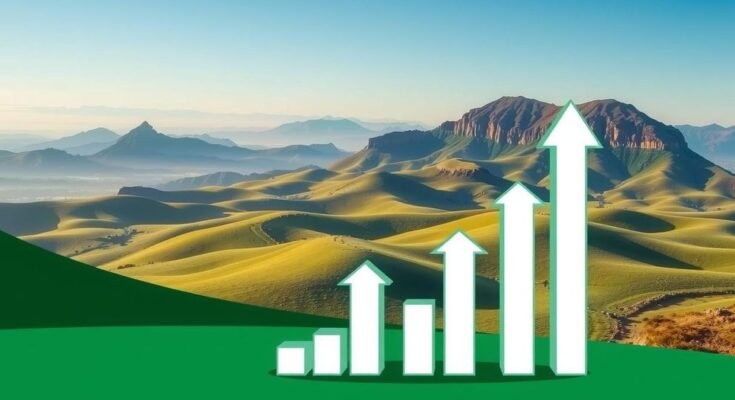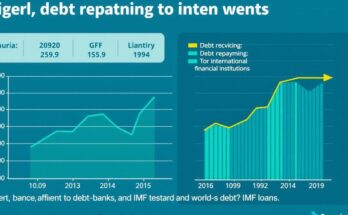The average inflation forecast for South Africa in 2025 has declined to 4.3%, below the central bank’s target. January’s inflation is reported at 3.2%, with expectations for February remaining stable. The economic growth outlook is 1.2% for 2025, lower than the government’s projection, amid political contention over budget proposals.
In the first quarter of this year, the average inflation forecast for 2025, as reported in a survey commissioned by the central bank, fell to 4.3%, down from the previous estimate of 4.5%. This forecast now sits below the South African Reserve Bank’s target of 4.5%, which is the midpoint of its 3%-6% target band.
The Bureau for Economic Research (BER) indicated that analysts, business leaders, and trade union officials participated in the survey. In terms of recent inflation data, the headline consumer inflation rose to 3.2% year-on-year in January, with February figures expected to remain consistent with this trend.
Economists surveyed anticipate that the South African Reserve Bank will likely pause its rate-cutting cycle during the upcoming meeting, as per Reuters predictions. The Bank has a reputation for cautious monetary policy, and its governor has recently highlighted potential risks associated with global trade tensions and local VAT increases.
For 2026, the inflation forecast remains steady at 4.6%, as reported by the BER. Analysts exhibit the most optimism, predicting inflation rates of 3.9% for the current year and 4.3% for the following year. The average economic growth forecast provided by respondents stands at 1.2% for 2025, significantly lower than the government’s anticipated growth of 1.9% outlined in the latest budget.
Political contention surrounds the budget, with numerous political parties expressing opposition due to a plan for a VAT increase, contributing to a stalemate in South Africa’s coalition government.
In summary, South Africa’s inflation forecast for 2025 has decreased to 4.3%, indicating optimism among analysts despite caution exercised by the South African Reserve Bank. The inflation rate for January was reported at 3.2%, with predictions suggesting a similar trend for February. Additionally, the average growth forecast is lower than government predictions, highlighting ongoing economic challenges amid political disputes regarding the budget and VAT increases.
Original Source: www.zawya.com




